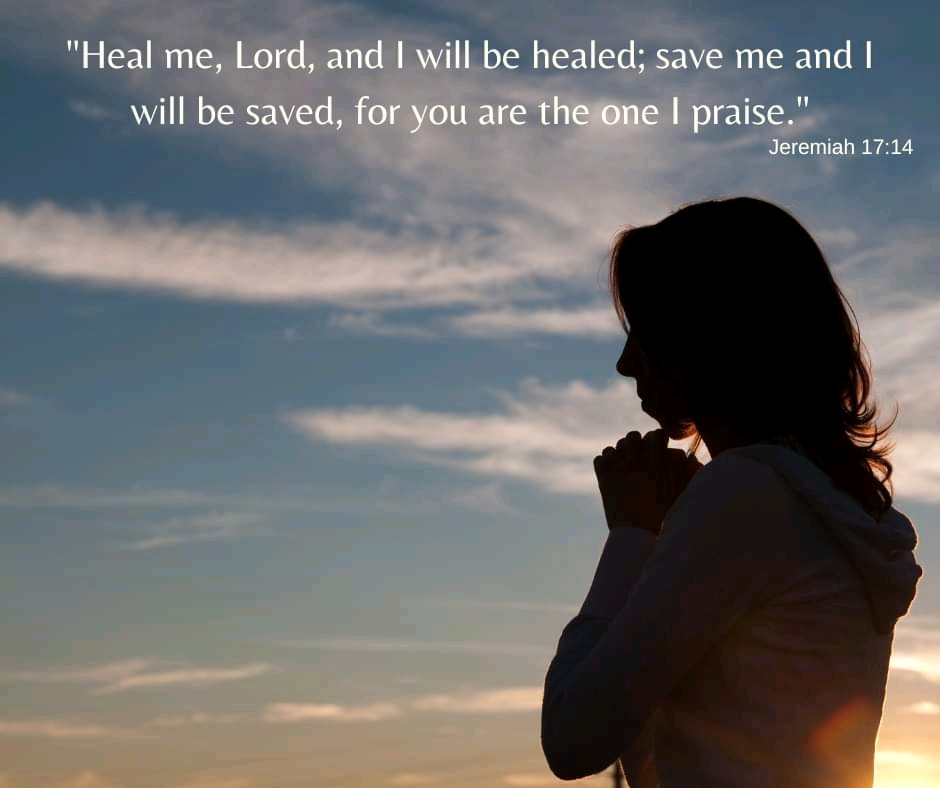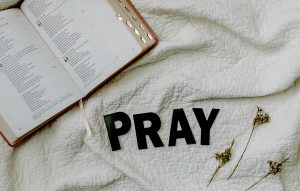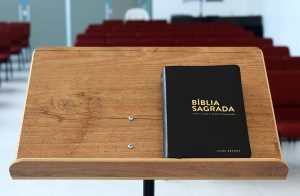When the light goes out at night,
I feel the sadness creep up around my heart. The ache feels like water, and sometimes I feel like I’m drowning. The ;physical darkness at night creates a darkness for the soul. Looking back, I probably struggled with depression from an early age. As a teenager in high school, I would get “moody.” How could I tell the difference between a growing body and hormones to a melancholy disposition?
Many times, I would cry in my bed. The pressure of college (most of which I put on myself) hurled me into a cycle of stress, anxiety, and then depression. Pressing forward, I was determined to do the right thing. My Bible reading habit began in my junior year of high school. A young mom from my church took me under her wing and encouraged me to start reading the Bible on my own. Every day I would see my mother open up her Bible at the kitchen table. I then began reading God’s Word every day.
During college my deep love for God’s Word caused me to get up an hour early before leaving so I could have that time to study. I devoured Bible study after Bible study. Authors like Elizabeth George, Cynthia Heald, and Beth Moore became my teachers. I soaked up the passion and knowledge. Even though depression was a part of my life in a small way during that time, it wasn’t until I had my second son that it began to take over my life.
Four months after giving birth, my grandmother passed away. Her death was followed a few months later by an uncle’s death. With death, sorrow, and postpartum hormones, the depression sunk me so low I couldn’t find the room to breathe. On the outside, my life continued on like “normal.” I went to church, I helped in youth group, and I played the piano. Inside it was a battle.
During that time, it felt impossible to read my Bible. Many times, I began to feel as if the Bible was not comforting. I would read verses like:
Be strong and take heart, all you who hope in the Lord. Psalm 31:24
And the peace of God, which transcends all understanding, will guard your hearts and your minds in Christ Jesus. Philippians 4:7
You make known to me the path of life; you will fill me with joy in your presence, with eternal pleasures at your right hand. Psalm 16:11
But my heart was less than hopeful, I was feeling the pull toward despair. How could God be good when I was suffering? Where was God’s power to take away this sadness? What is so wrong with me that God would punish me? All of those questions plagued me night after night. Every time I tried to pray, read my Bible, or think about God, I felt like a hypocrite. Did I really believe these words when my world felt small, overwhelming, and sad?W
1. Then the Bible Doesn’t Make Us Feel Anything.
In the midst of the darkest days, I picked up a book by Ed Welch. His book Looking Up from the Stubborn Darknesswas light for my path. That’s what my depression felt like: a stubborn darkness. A darkness that wouldn’t shake. Darkness that followed me around like a black cloud. It might dissipate a little during the day because I had two boys to take care and my pride would not let others know my pain.
After reading that book, I learned a few lessons about depression. First, it was not a punishment, and it was not because I was a sinner. God was not angry with me. Next, I learned that it was more important that I understand the “Who” behind my suffering rather than the “why.” It was ok that I didn’t know “why” I suffered from this. Finally, I learned it was not hypocritical to read my Bible out of duty during times of depression.
Previously I had thought Bible reading should be all about connecting with God and feeling the comfort and peace available in Him. For years I gained so much knowledge, comfort, peace, joy, and strength from the Bible. Until one day, deep in my depression, I felt nothing after reading the Bible. I realized reading my Bible during that time wasn’t about feeling anything. It was ok not to feel anything.
There was truth between the pages, no matter how I said I felt. Reading my Bible is for my good, even if I can’t see the good right away. So how do we keep reading our Bible when we feel depressed? Here are some truths and tips to keep with you as you navigate life with depression. The truths are there for you to believe, and the tips are there for you when you can’t seem to go on.
2 Truths about Bible Reading When You Are Depressed.
God has not left you. Even when you can’t feel Him, see Him, or understand what He is doing. God has not left you. I know it feels like He has. The world might have walked out, but God doesn’t just leave. His presence is not based on our feelings. Knowing God is near is a belief we hold on to with our minds. Believe this is true because it is, not because you see it or feel it.
Time in God’s Word is never wasted. The Bible can bring comfort, but it might not always right away. Yes, I’ve gained comfort for my depression in God’s Word, but not every time. Sometimes I read just out of habit. There is still value in reading our Bible, even when we don’t feel different. Keep reading because you will reap the benefits of reading and studying the Bible, even if it’s not right way.
3 Tips for Reading the Bible When You Are Depressed.
1. Get a Bible reading plan. Don’t wake up each day and not know where you will be reading in the Bible. If that’s the case, you won’t read. Get a plan. You can download this free plan here.
2. Have someone read aloud to you. In the middle of the night, when I was awake with sadness, my husband would get out his Bible and read out loud in the Book of Psalms. He would just read the words. We wouldn’t talk about them, just read them.
3. It is ok to just read. You don’t have to journal; you don’t have to do a Bible study. Sometimes just reading the words is all you can muster. That’s ok.
Depression lies to us. I knew that, even in the middle of the depression. Only, I couldn’t bring myself to find hope in the Bible when my questions lingered in front of God unanswered. During that time, I didn’t feel God close nor did I hear His voice. The God I had fallen in love with in college and studied so deeply as a brand new mom a few years earlier felt distant, quiet, and absent.
I wish I could say, fourteen years later, that depression has been defeated. It hasn’t. It is still a part of my life. Living over a decade with depression has allowed me to find a closeness with God I would not have otherwise. Depression used to scare me, and the darkness was once overwhelming. After a decade of reading my Bible, even with depression, I can say with the Psalmist:
If I say, “Surely the darkness will hide me and the light become night around me,” even the darkness will not be dark to you; the night will shine like the day, for darkness is as light to you. Psalm 139:11-12
God is not afraid of the dark. God is not hidden in the dark. God is found in the dark. Not only that, He has provided a light for our path. That light is God’s Word.





















